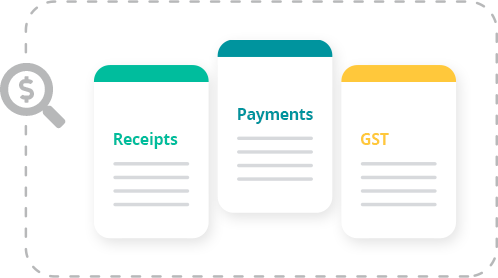Budgeting and forecasting for small businesses
3 min read
Budgeting and forecasting for small businesses sits at the very heart of profitability and success.
If forecasting and budgeting for small businesses is inadequate, the ability to turn a profit, grow a business, get finance and endure into the future could be severely compromised.
This is one of the most vital aspects of succeeding as a small business. Luckily, budgeting and forecasting is easily taught and implemented with either small business accounting software or basic accounting techniques.
With a little know-how and discipline, budgeting and forecasting for your small business is easily within your grasp.
What is a budget and how does budgeting work?

Getting back to basics, let’s take a few seconds to remind ourselves: what is budgeting and how does budgeting work?
So, what is a business budget? A budget is simply a plan for income and expenses.
In its most basic form, a budget consists of:
Timeline:
Define the period of your business budget. Many small businesses will budget quarterly, half yearly or yearly.
Income:
Map out your expected income for the period. It’s prudent to underestimate your income to avoid financially painful errors which can result in a cashflow shortfall.
Fixed expenses:
A fixed expense is an expense which is stable, reliable, and unlikely or impossible to change. For example, your own salary, rent, internet and insurance are fixed expenses.
Variable expenses:
A variable expense is a cost which fluctuates and is less predictable. For example, rates, staff wages and stock purchases. As this is the most volatile aspect of your budget, do what you can to make variable expenses fixed (through fixed term contracts, for example).
Make sure to overestimate variable expenses to reduce budget shock.
Why is budgeting so important?
At the bare minimum, budgeting controls your spending, keeps a record of your expenses and maps the health of your cashflow and savings.
Just as important, a budget helps you:
- plan your financial decisions
- predict ups and downs in cashflow which will alter your behaviour
- insulate yourself against unexpected purchases
- manage debt
- provide evidence for business finance applications
- galvanise your future financial health with confidence.
What is budget forecasting and planning?
Budget forecasting and planning is the act of predicting cashflow and expenditure over a future period of time, based on both previous performance and predicted trends.
If you have implemented a budget and witnessed its performance, you can take the next advisable step and begin planning into the future with solid data to back your predictions.
Tip: Budget forecast reporting is often undertaken more frequently than a budget, often monthly.
How to make a budget
We can hear you ask: how to make a budget? Well, don’t go it alone. Gone are the days of a self-managed excel spreadsheet.
Straight off the bat, there are excellent and affordable modern software solutions for small business budgeting and forecasting.
If cloud accounting software is combined with the direction of a trusted advisor, you’ll have a safe, automated, and professional platform to budget from.
In short: Use modern cloud accounting software or a budgeting tool to manage a budget which was designed in tandem with a bookkeeper or accountant.
Modern solutions will also analyse your budget data and provide forecasting reports, taking the sting out of such legwork.
Budget forecasting techniques
First and foremost, budget forecasting techniques can be deployed and managed within your chosen accounting solution. It will access the real data you input and make these calculations for you.
If you’d like to understand the budget forecasting process better, the following is a simple breakdown of a budget forecasting technique:
- Identify key budget data (sales and expenses etc.)
- Compile your most recent actuals.
- Determine the time frame for your forecast.
- Analyse trends based on historical and current actuals.
- Apply these trend calculations and predictions to your real-time numbers to result in your budget forecast.
Modern budgeting and forecasting
If not done efficiently or effectively, countless wasted hours can be spent by a small business calculating budgets and forecasts.
By leaning on affordable, accurate and automated accounting solutions, as well as an advisor, budgeting and forecasting for small business becomes an effortless and profitable affair.
Free cash flow forecast template
Get your free editable cashflow forecast template to better map out your future sales and expenses for your business!

Try Reckon One free for 30 days
Cancel anytime.
















